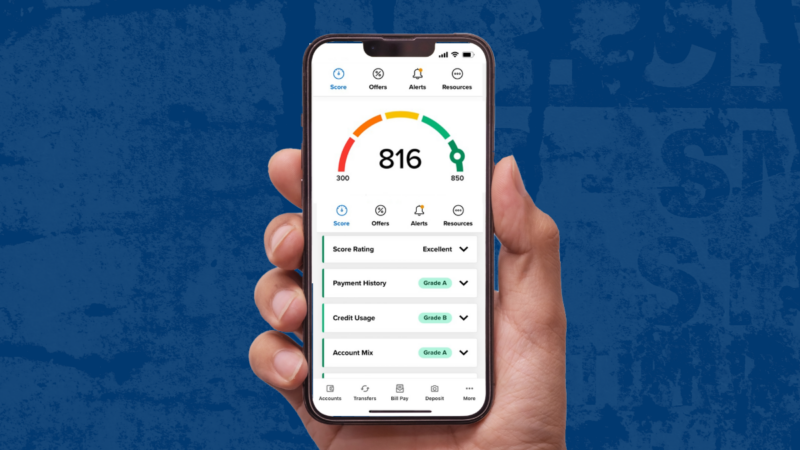The Importance of Good Credit

A strong credit score is more than just a number. It’s a fundamental element of your financial health, provides access to affordable lending, and an indicator of financial responsibility. Establishing and maintaining good credit scores can open up numerous opportunities in your financial life.
What is a Credit Score?
Your credit score is a three-digit number that reflects your creditworthiness and how well you manage your finances. It ranges from 300 to 850, with higher scores indicating that you are more likely to repay your debts on time and pay bills.
Credit scores are calculated using information from your credit accounts. Your credit data is collected by credit-reporting agencies, also known as credit bureaus, and are compiled to make up your credit report. There are three major credit bureaus: Equifax, Experian, and TransUnion. Because there are multiple organizations that provide users with their credit score, everyone has multiple credit scores that vary slightly.
What is a Good Credit Score?
A good credit score depends on where a score comes from and who is judging it. FICO, which is one credit-scoring organization, shows that scores between 670 and 739 qualify as good. For VantageScore, another credit-scoring organization, scores between 661 and 780 are considered good. FICO and VantageScore both pull from the same credit data but weigh the information differently.
Benefits of a Good Credit Score
- Access to Better Interest Rates: Lenders perceive a high credit score as a sign of reliability; therefore, they are more inclined to offer you a lower interest rate.
- Qualify for Loans and Credit Cards: A good credit score can make it easier for you to get approved for loans and credit cards.
- Better Insurance Premiums: Insurance companies use your credit score as a factor when setting their premium rates. A high credit score can lead to lower insurance premiums, saving you money in the long run.
- Securing Opportunities: Landlords, employers, and utility providers often check credit scores during the application process. A good credit score indicates that you’re a responsible payer, increasing your chances of securing a rental apartment or getting utilities with little to no security deposits.
What happens if your credit score takes a hit?
Negative actions such as late payments, high balance-to-limit ratios, and bankruptcy can lead to a significant drop in your credit score. This drop can make borrowing more expensive or even impossible. You might face higher interest rates, less likely approval for credit and loans, or you may be required to secure assets as collateral or have a co-signer on your loans.
Moreover, a low credit score can affect more than just your borrowing ability. It can make it more difficult to rent a house, be approved for a loan, or even land a job, as certain employers check credit as part of the hiring process.
Maintaining a good credit score is crucial for your financial wellness. Be aware of the factors that could negatively affect your score and strive to make financial decisions that will keep your credit score healthy. Remember, good credit opens doors to opportunities, while poor credit often closes them.
How to find your Credit Score
To find out your credit score, reach out to your financial institution. They can provide you with the necessary information and guidance on how to access your score. If you are a member of cPort Credit Union, you have free access to your credit score through our ebanking platform. To begin the process, simply log into your eBanking account or use your cPort mobile app. Once you’ve logged in, click the “credit monitoring” menu option. If you haven’t already, follow the prompts that allow you to sign up for Savvy Money’s credit monitoring. If you get stuck, we’re always here to help. Just give us a call or send us a message.
